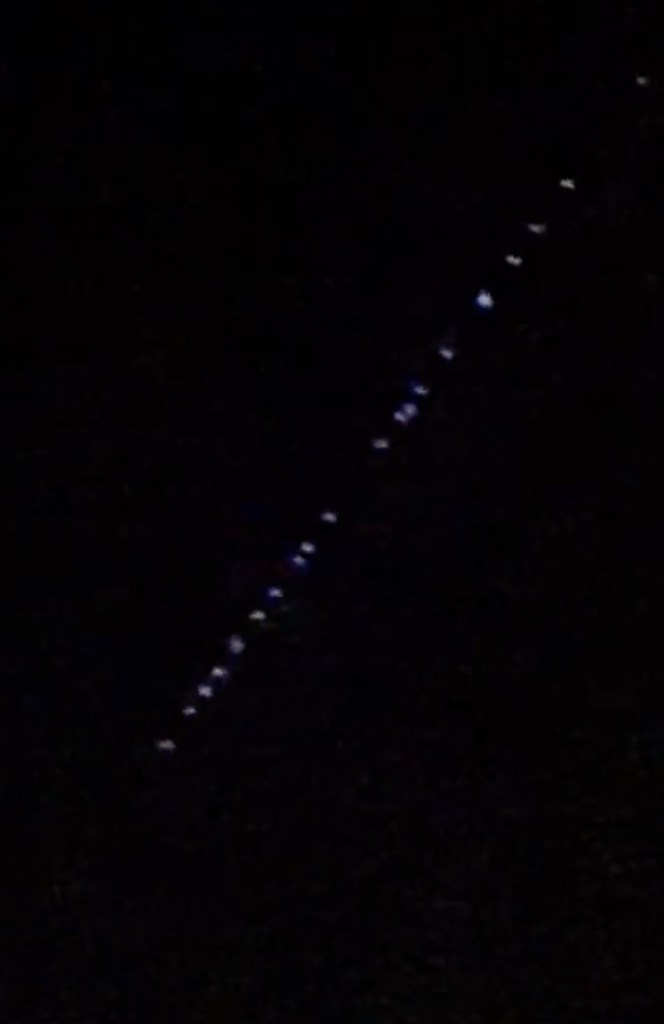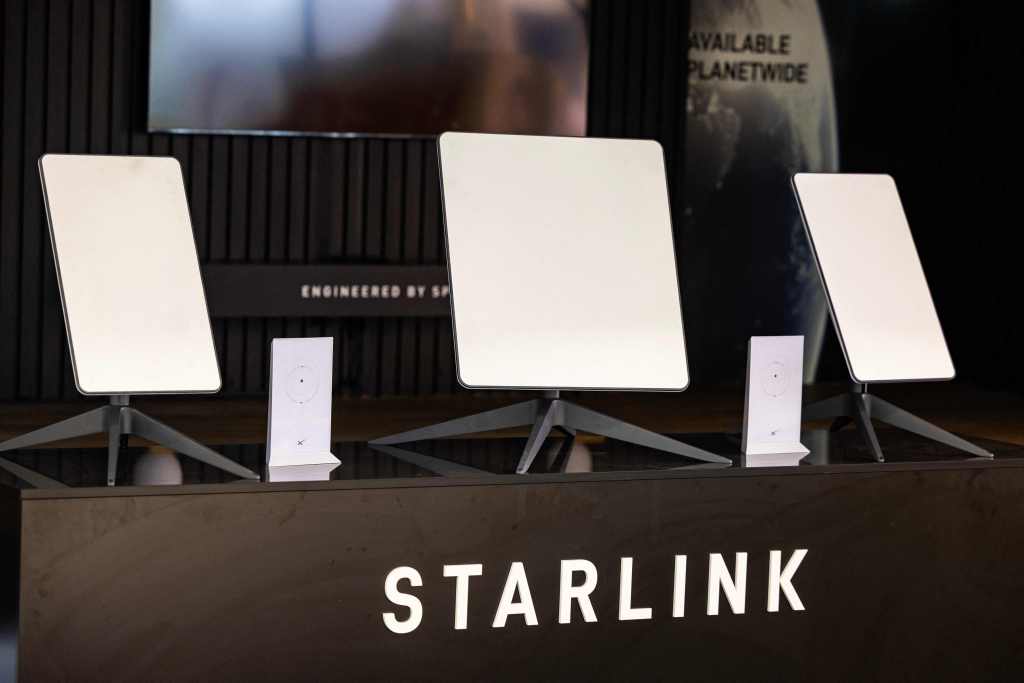Elon Musk’s Starlink satellite launch causes UFO scare in New Jersey
New Jersey residents were given a space-age scare when they spotted Elon Musk’s Starlink satellites hovering over the Garden State as the aerospace company launched its latest batch of devices into orbit.
Stargazers were left puzzled Saturday night when they spotted dozens of lights soaring in a perfectly linear position above their heads — believing extra-terrestrial UFOs could be to blame.
Social media was ablaze with hopes that alien objects had decided to cruise over New Jersey — on the heels of the latest round of congressional hearings on flying saucers.
The New Jersey sightings, however, were much more mundane.
SpaceX revealed that the lights were just Starlink’s satellites passing over the area after launching from Cape Canaveral late Friday.
“This was the fifth flight for the first stage booster supporting this mission, which previously launched Crew-6, SES O3b mPOWER,” according to SpaceX.
This isn’t the first time an anomaly over the night sky has turned out to be a Starlink satellite.
Earlier this year, researchers from the University of Vermont and the Center for UFO Studies found that Musk’s SpaceX was responsible for an uptick in UFO sightings since the pandemic began.
Researchers initially believed that pandemic boredom caused more people to investigate the night sky and report more than 600 sightings than usual in 2020. But the cases coincided with SpaceX’s Starlink satellites.


The company launched dozens of satellites into orbit in May 2019 to provide internet coverage to 50 countries around the world, with reports of UFOs spiking at around the same time.
The study suggested that SpaceX was solely responsible for the uptick, concluding that when reports linked to Starlink satellites were removed, “there was no increase in sightings in 2020 compared to 2019.”
SpaceX has more than 3,000 satellites orbiting the Earth, many of them easily visible and currently making up the largest low-orbit constellation in the sky.
The satellites are likely to cause more confusion in the future as SpaceX aims to have more than 10,000 satellites up in the sky by 2027.
Read the full article Here


